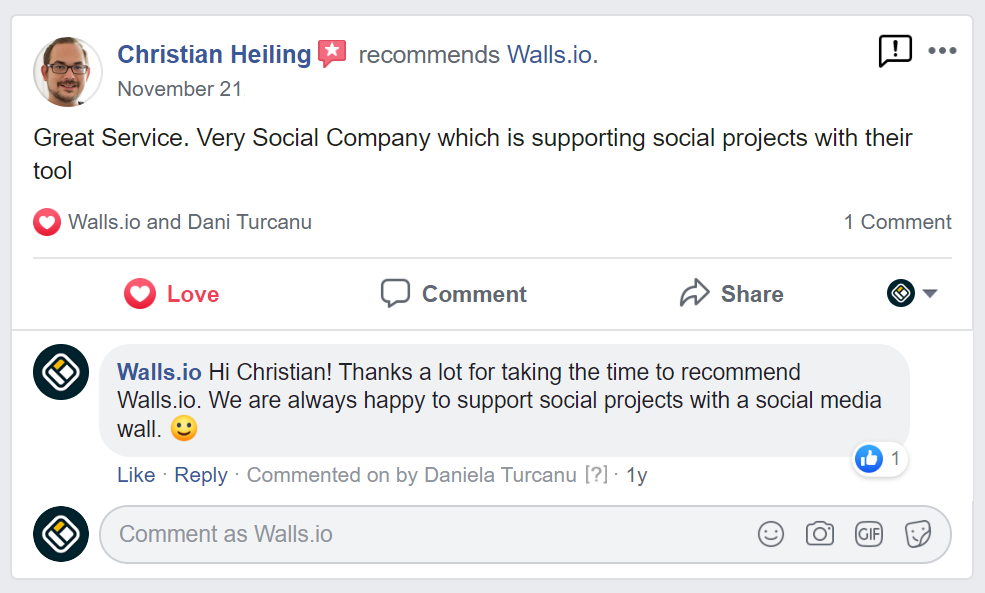n today’s digital landscape, customer feedback has become a valuable asset for businesses seeking to enhance their social media engagement. As social media platforms continue to evolve and serve as prominent channels for brand-consumer interactions, businesses are realizing the significance of leveraging customer feedback to drive engagement, build trust, and create meaningful connections with their audience.
Customer feedback serves as a powerful tool that provides businesses with valuable insights into the needs, preferences, and sentiments of their customers. By actively listening to and incorporating customer feedback, businesses can demonstrate their commitment to delivering exceptional experiences and tailor their social media strategies accordingly. This not only fosters trust and loyalty among existing customers but also attracts new customers who value authentic and customer-centric brands.
In this post, we will delve into the role of customer feedback in increasing social media engagement. We will explore the diverse benefits that businesses can derive from leveraging customer feedback as a catalyst for engagement. From gaining a deeper understanding of customer needs and preferences to identifying areas for improvement, customer feedback serves as a valuable resource for shaping content, campaigns, and overall social media strategy.
I. The Value of Customer Feedback:
Customer feedback holds immense value for businesses as it provides valuable insights into customer preferences, needs, and pain points. By actively listening to and leveraging customer feedback, businesses can gain a deeper understanding of their audience, tailor their offerings to meet customer expectations, and foster stronger relationships based on mutual understanding and trust.
II. Benefits of Customer Feedback in Social Media Engagement:
Effectively utilizing customer feedback in social media engagement can have a transformative impact on a brand’s perception and engagement levels. Customer feedback serves as a powerful tool for building trust and credibility among the audience. When businesses actively respond to customer feedback, whether it’s addressing concerns or expressing gratitude for positive feedback, it demonstrates a commitment to customer satisfaction and creates a sense of authenticity. Moreover, customer feedback often generates user-generated content, such as testimonials or reviews, which can serve as valuable social proof and encourage others to engage with the brand. Additionally, customer feedback sparks conversations, providing an opportunity for meaningful interactions with customers, and fostering a sense of community around the brand.

III. Collecting Customer Feedback:
Implementing effective strategies for collecting customer feedback is crucial for gathering valuable insights and engaging with customers. Businesses can employ various methods such as surveys, feedback forms, and online reviews to gather feedback. Social media listening tools allow businesses to monitor conversations and sentiment around their brand, enabling them to proactively engage with customers and address their concerns. Proactive engagement, such as reaching out to customers for their opinions or feedback, can also encourage customers to share their thoughts and contribute to the feedback process.
IV. Incorporating Customer Feedback for Enhanced Engagement:
Incorporating customer feedback into social media strategies enhances engagement and strengthens relationships with customers. Responding promptly and genuinely to customer feedback demonstrates active listening and shows that the brand values and appreciates its customers’ opinions. Addressing customer concerns publicly not only provides transparency but also shows other customers that their feedback is taken seriously. Highlighting positive feedback or success stories shared by customers can boost brand perception and encourage further engagement. Additionally, involving customers in content creation, such as featuring their testimonials or stories, not only creates a sense of ownership but also serves as a powerful way to connect with the audience.

V. Utilizing Feedback for Product and Service Improvements:
Customer feedback serves as a valuable resource for improving products and services, which, in turn, leads to increased engagement. By carefully analyzing customer feedback, businesses can identify areas for improvement, whether it’s addressing pain points, enhancing features, or introducing new offerings. Implementing necessary changes based on customer feedback demonstrates responsiveness and a commitment to continuously evolving and meeting customer needs. Communicating these updates to customers on social media not only keeps them informed but also invites further engagement and demonstrates that their feedback has been valued and taken into consideration.
VI. Monitoring and Analyzing Feedback Metrics:
Monitoring and analyzing feedback metrics are essential for businesses to track engagement and measure the impact of their customer feedback efforts. Social media analytics tools provide valuable insights into feedback metrics, allowing businesses to monitor sentiment, analyze engagement rates, and identify patterns and trends. By tracking these metrics, businesses can assess the effectiveness of their customer feedback strategies, identify areas for improvement, and make data-driven decisions to further enhance engagement and customer satisfaction.

In conclusion, customer feedback is a powerful tool for increasing social media engagement. By leveraging customer feedback, businesses can gain valuable insights, build trust, encourage user-generated content, and foster meaningful interactions on social media. Implementing strategies for collecting feedback, incorporating feedback into social media strategies, utilizing feedback for product improvements, and monitoring feedback metrics are essential practices for maximizing the impact of customer feedback.
Key Points Summary:
- Customer feedback provides valuable insights into customer preferences, needs, and pain points.
- Leveraging customer feedback drives engagement, builds trust, encourages user-generated content, and demonstrates responsiveness.
- Strategies for collecting customer feedback include surveys, feedback forms, online reviews, and social media listening tools.
- Incorporating customer feedback involves responding genuinely, addressing concerns publicly, highlighting positive feedback, and involving customers in content creation.
- Customer feedback serves as a resource for product and service improvements, leading to increased engagement.
- Monitoring and analyzing feedback metrics enable businesses to track engagement and measure the impact of customer feedback efforts.
Contact us today to learn how we can help you utilize customer feedback to increase social media engagement for your business.





